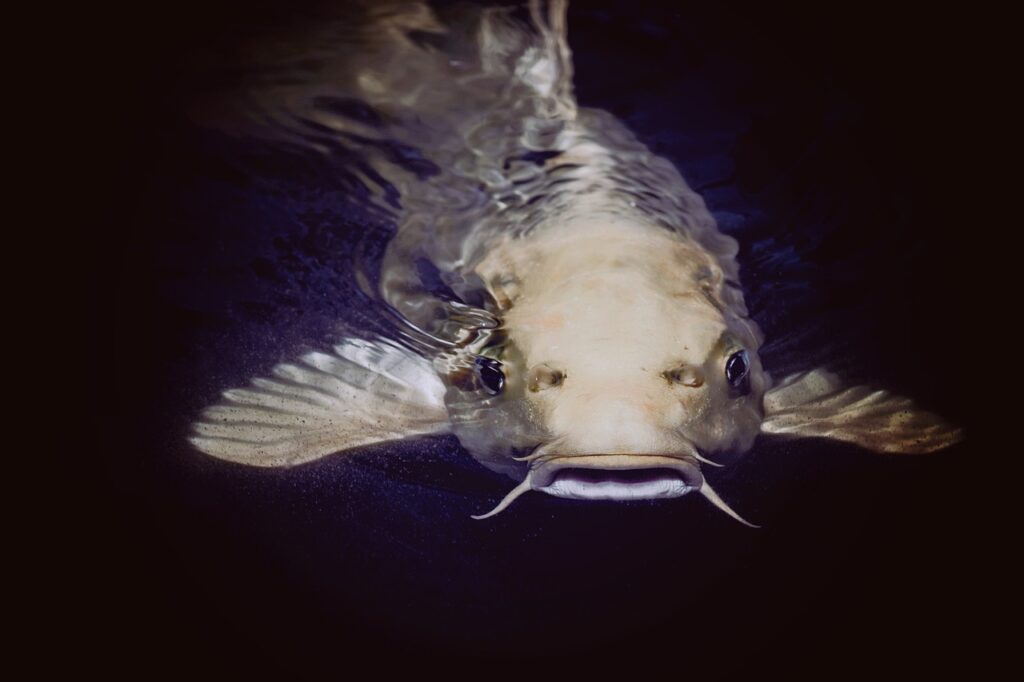Have you ever noticed unsightly sores on your fish and started feeling a wave of concern wash over you? Don’t worry, you’re not alone, and there’s a solution in sight. We are going to reveal the answer in The Mystery of Fish Ulcers Solved.
You will discover the common causes behind these distressing symptoms and find out some practical, effective ways to treat and prevent them. This guide cuts through the confusion, offering you clear, step-by-step advice to ensure your aquatic friends stay healthy and happy.

What Are Fish Ulcers?
Fish ulcers are open sores or lesions that appear on the skin of your aquatic friends. They can be alarming, but understanding what they are and why they occur can help you treat and even prevent them.
What Do Fish Ulcers Look Like?
Fish ulcers often manifest as red, open sores on the fish’s body. They may start small but can grow larger and more severe if untreated. These sores can sometimes have a whitish center, indicating an infection.
Common Symptoms
Besides the obvious sores, other symptoms might include:
- Lethargy: Your fish may become less active.
- Loss of Appetite: They might eat less or stop eating altogether.
- Fins Clamped: Notice how your fish holds its fins close to its body.
- Odd Swimming Patterns: Unusual or erratic movements.
Causes of Fish Ulcers
Understanding the root causes is the first step in treatment and prevention.
Bacterial Infections
One of the most common causes of fish ulcers is bacterial infection. Pathogens such as Aeromonas and Pseudomonas are frequent culprits.
Parasitic Infestations
External parasites like flukes or anchor worms can irritate the fish skin and provide entry points for bacteria.
Poor Water Quality
Water quality plays a significant role. High levels of ammonia, nitrites, or nitrates can weaken a fish’s immune system, making them more susceptible to infections.
Stress
Stress from overcrowding, frequent handling, or sudden changes in water temperature can also lead to ulcers.
Nutritional Deficiencies
A lack of essential vitamins and minerals can weaken the fish’s immune system, making them more susceptible to infections.
Table: Common Causes of Fish Ulcers
| Cause | Description |
|---|---|
| Bacterial Infections | Aeromonas, Pseudomonas |
| Parasitic Infestations | Flukes, anchor worms |
| Poor Water Quality | High ammonia, nitrites, nitrates |
| Stress | Overcrowding, handling, temperature changes |
| Nutritional Deficiencies | Lack of essential vitamins and minerals |
Diagnosing Fish Ulcers
Knowing what causes fish ulcers is crucial, but proper diagnosis is equally important.
Visual Inspection
A thorough visual inspection can often identify the problem. Look for:
- Red, open sores
- White patches or fungus
- Presence of parasites
Water Testing
Check the water quality with a reliable test kit. High levels of ammonia, nitrites, or nitrates can contribute to the problem.
Professional Diagnosis
When in doubt, consult a veterinarian or an expert in aquatic health for a definitive diagnosis.
Treatment Options
Once you’ve identified the problem, effective treatment is the next step.
Quarantine the Affected Fish
First and foremost, remove the affected fish to a quarantine tank. This will prevent the spread of infection and allow for a controlled treatment environment.
Improving Water Quality
Perform a water change and monitor the water parameters. Aim to keep ammonia and nitrite levels at 0 ppm and nitrates below 20 ppm.
Antibiotics and Medications
Depending on the cause, antibiotics may be necessary. Always follow the guidelines and dosages prescribed by the manufacturer or a veterinarian.
Table: Common Medications for Treating Fish Ulcers
| Medication | Use |
|---|---|
| Antibiotics | Treat bacterial infections |
| Anti-parasitic treatments | Treat parasitic infestations |
| Water conditioners | Improve water quality |
| Vitamin supplements | Address nutritional deficiencies |
Natural Remedies
Sometimes, natural remedies can complement standard treatments. For example, adding salt to the quarantine tank can help reduce stress and kill parasites.

Monitoring and Follow-Up
Continue to monitor the affected fish and make adjustments to the treatment plan as necessary. Patience and consistency are key.
Preventing Fish Ulcers
Prevention is always better than cure. Here are some effective strategies:
Maintain Proper Water Quality
Regular water changes and monitoring water parameters can go a long way in maintaining a healthy environment.
Provide a Balanced Diet
Ensure your fish are getting all the essential nutrients they need to stay healthy and stress-free.
Avoid Overcrowding
Give your fish enough space to swim freely and establish territories. Overcrowding can lead to stress and increased disease susceptibility.
Regular Health Checks
Frequent visual inspections and health checks can catch issues before they become serious problems.
Table: Prevention Tips
| Tip | Description |
|---|---|
| Maintain Water Quality | Regular water changes and monitoring |
| Balanced Diet | Provide all essential nutrients |
| Avoid Overcrowding | Give fish enough space |
| Regular Health Checks | Frequent visual inspections |

Common Myths About Fish Ulcers
There are plenty of misconceptions when it comes to fish health. Dispelling these myths can help you make informed decisions.
Myth: Fish Ulcers Are Always Fatal
False! Many cases of fish ulcers can be effectively treated if caught early.
Myth: Only Poor Water Quality Causes Ulcers
While poor water quality is a significant factor, it’s not the only one. Bacterial infections, parasitic infestations, and nutritional deficiencies can also lead to ulcers.
Myth: You Can Ignore Small Sores
Even small sores can escalate into serious infections. It’s best to address them as soon as they’re noticed.
Table: Myths vs. Facts
| Myth | Fact |
|---|---|
| Ulcers Are Always Fatal | Early treatment is effective |
| Only Poor Water Quality Causes Ulcers | Multiple causes exist |
| Small Sores Can Be Ignored | Early intervention is crucial |

Expert Tips for Successful Fish Care
Sometimes, a few expert tips can make all the difference in maintaining a healthy aquarium.
Invest in Quality Equipment
From filters to heaters, quality equipment ensures a stable and healthy environment for your fish.
Keep Up With Maintenance
Regular maintenance routines, including water changes and equipment checks, are crucial for a healthy aquarium.
Learn From Others
Join forums, attend workshops, and engage with other fishkeepers. Sharing experiences can provide valuable insights.
Don’t Skip Quarantine
Always quarantine new fish before introducing them to your main tank. This can prevent the introduction of diseases and parasites.
When to Seek Professional Help
Sometimes, despite your best efforts, professional intervention is needed.
Signs You Need a Vet
- Persistent sores despite treatment
- Rapid deterioration of fish health
- Secondary infections or complications
Where to Find Help
Look for a veterinarian specializing in aquatic health or consult local aquarium shops and forums for expert advice.
The Mystery Of Fish Ulcers Solved
Fish ulcers can be a daunting issue, but with the right knowledge and approach, they are manageable. By understanding the causes, diagnosing accurately, and implementing effective treatments, you can ensure your fish return to their happy, healthy selves. Always remember, regular maintenance and preventive measures are key to a thriving aquarium.
So, the next time you spot a sore on your fish, don’t panic! You’ve got the tools and knowledge to handle it. Happy fishkeeping!
